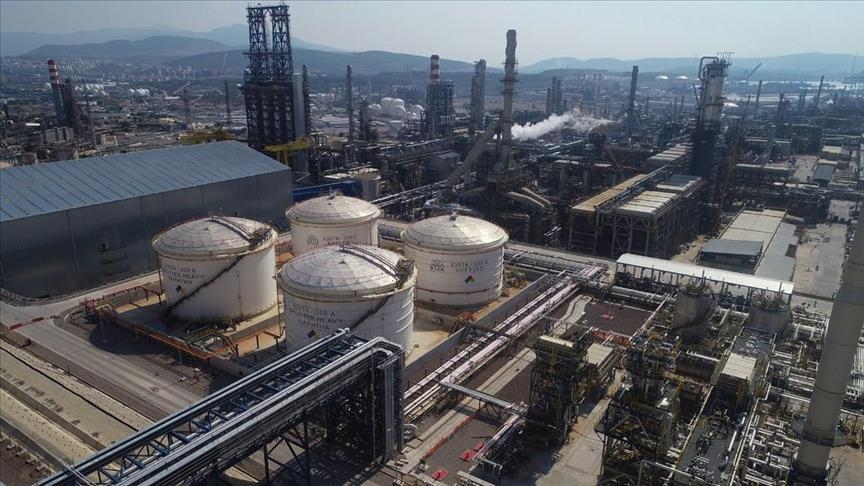Oil retreats over protracted demand woes in China
Investors will monitor latest OPEC and IEA demand data on Tuesday and Wednesday, respectively

ANKARA
Oil prices declined on Monday amid demand worries as China’s strict zero-COVID policy continues to weigh on market sentiment along with fears of an economic slowdown.
International benchmark Brent crude traded at $92.29 per barrel at 10.03 a.m. local time (0703 GMT) for a 0.59% loss from the closing price of $92.84 a barrel in the previous trading session.
American benchmark West Texas Intermediate (WTI) traded at $86.11 per barrel at the same time for a 0.78% decrease after the previous session closed at $86.79 a barrel.
Oil investors started the week with unfolding demand fears caused by China’s strict pandemic measures, as the country last week extended lockdown measures in the western city of Chengdu, a city home to almost 21 million people.
“Hundreds of millions of Chinese who typically hit the roads and domestic flights during the Mid-Autumn Festival - falling on Sept. 10 this year - and early October's Golden Week holidays are expected to stay home to avoid being ensnared by sudden lockdowns to curb the spread of COVID-19,” said Mukesh Sadhav, head of downstream and oil trading at consultancy Rystad Energy.
Sadhav said lockdowns in key cities such as financial hub Shanghai have already hurt China's oil demand in the second quarter, while recovery for the rest of the year is expected to be slow as China adheres to its zero-COVID policy.
“This could cap intake of the world's top crude oil importer and dent global oil prices,” he added.
Investors are monitoring how EU sanctions and recent price caps on Russian oil exports will reshape the supply map and impact geopolitics.
In line with the sixth sanctions package, EU leaders agreed earlier in July on a 90% reduction in Russian oil imports by the end of the year.
The plan also includes phasing out Russian crude oil supplies by Dec. 5 and the supply of refined products by Feb. 5.
The EU’s plan to partially ban Russian oil was followed by the bloc’s recent move to cap Russia's crude oil export prices. Russia, however, retaliated by closing its key Nord Stream pipeline that supplies gas to Europe “due to a technical issue”.
Investors will be keeping tabs on the latest demand and supply data to be published by the Organization of Petroleum Exporting Countries (OPEC) and the International Energy Agency (IEA) on Tuesday and Wednesday, respectively.
Anadolu Agency website contains only a portion of the news stories offered to subscribers in the AA News Broadcasting System (HAS), and in summarized form. Please contact us for subscription options.



